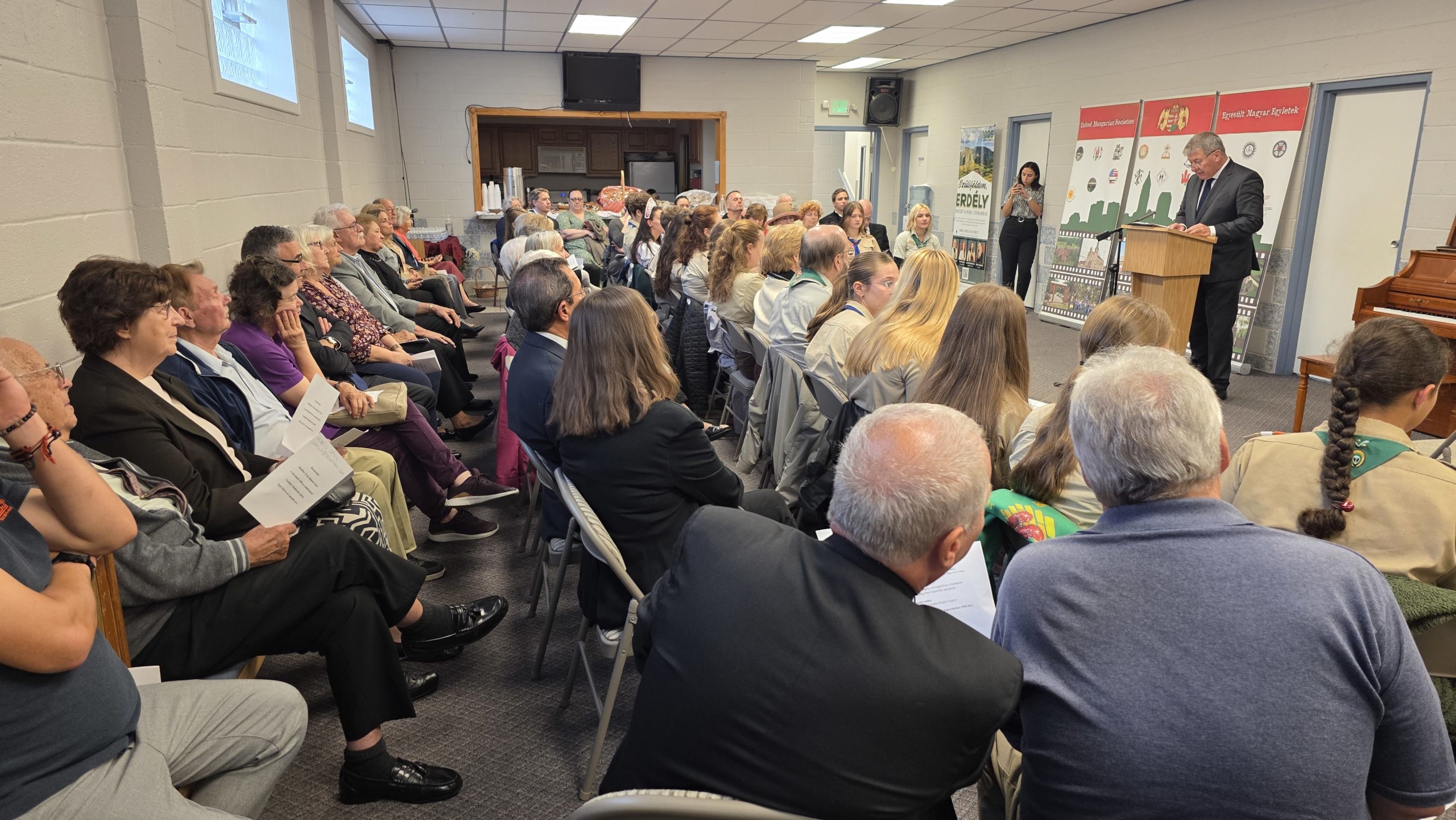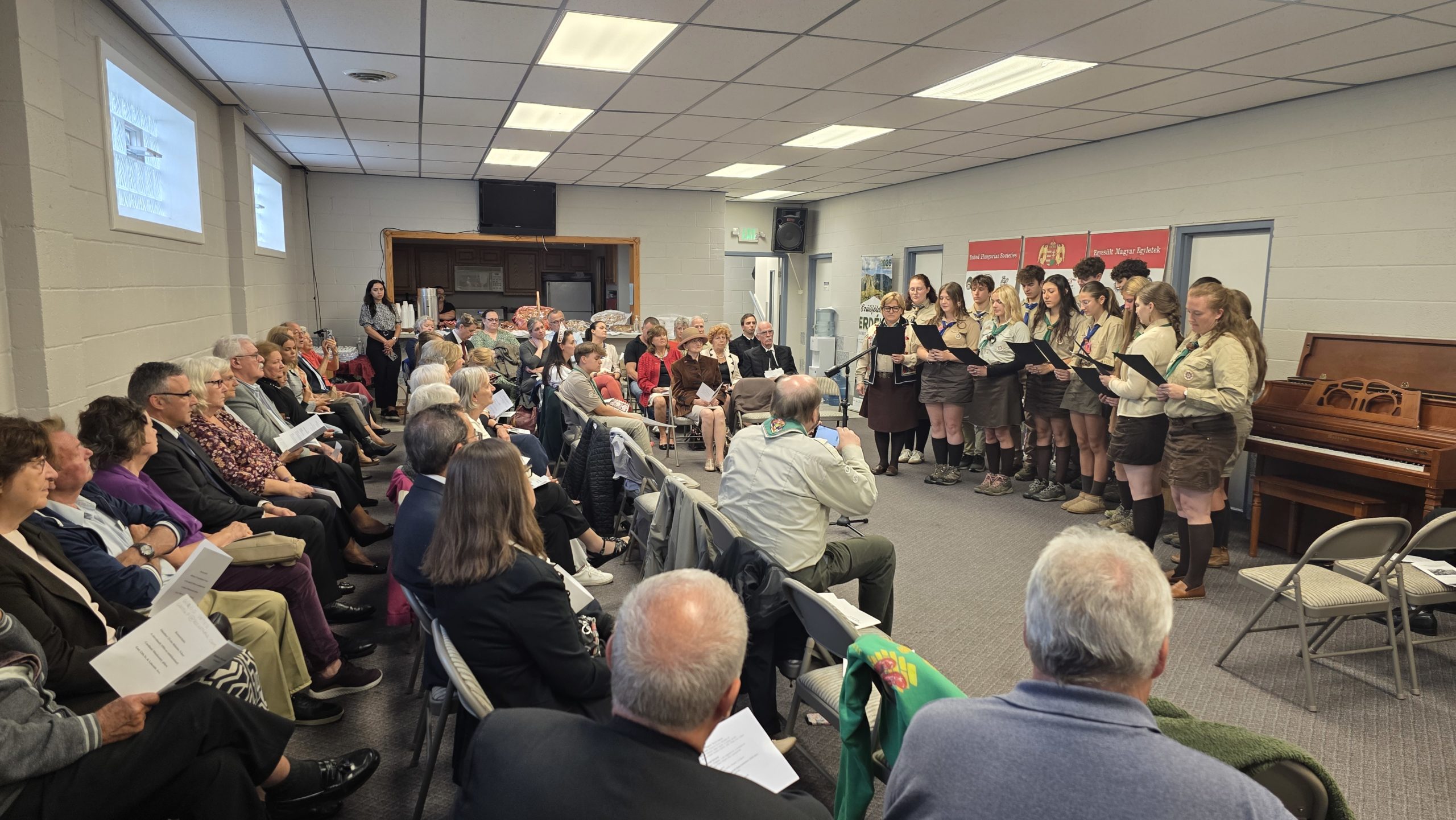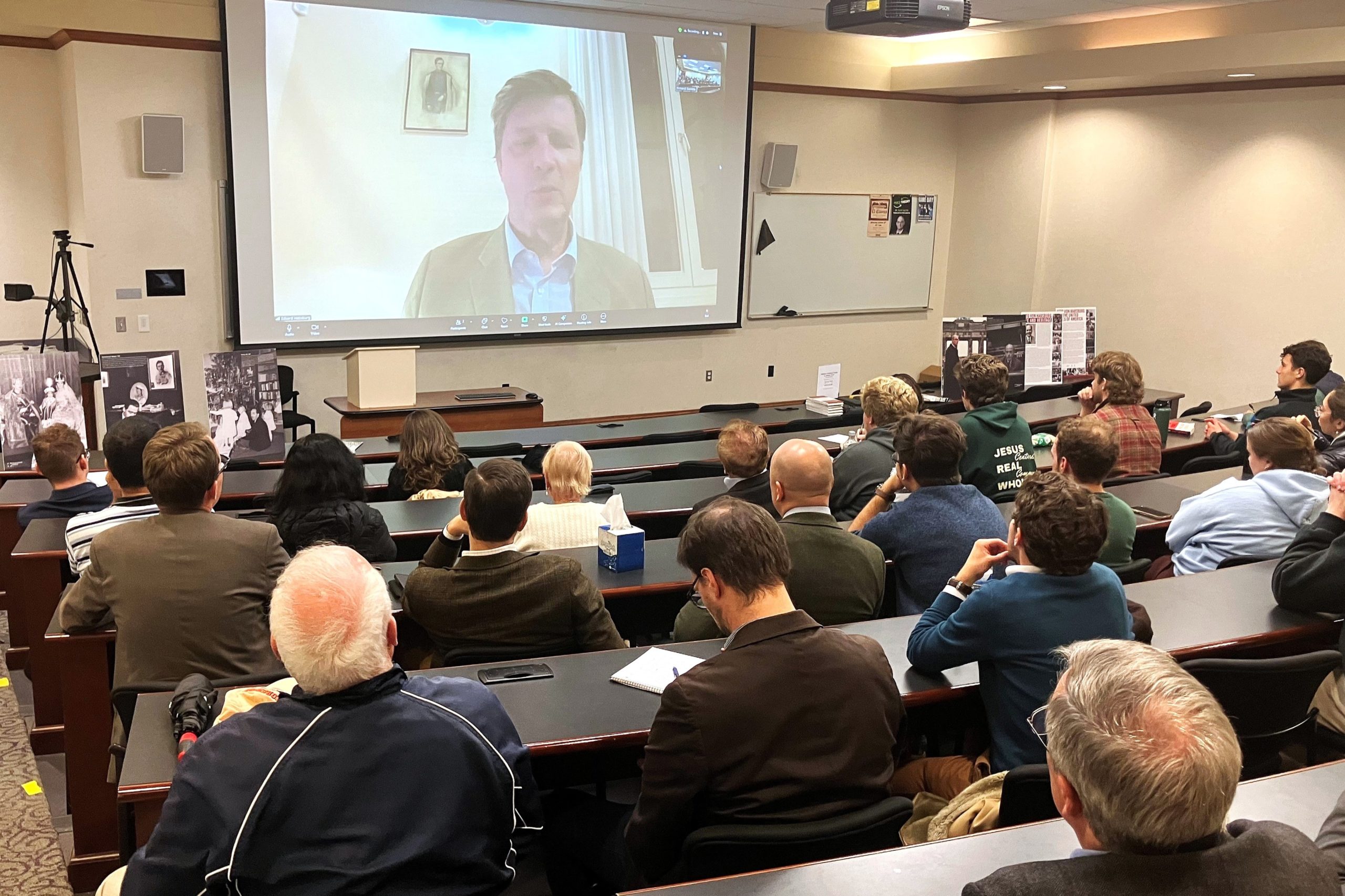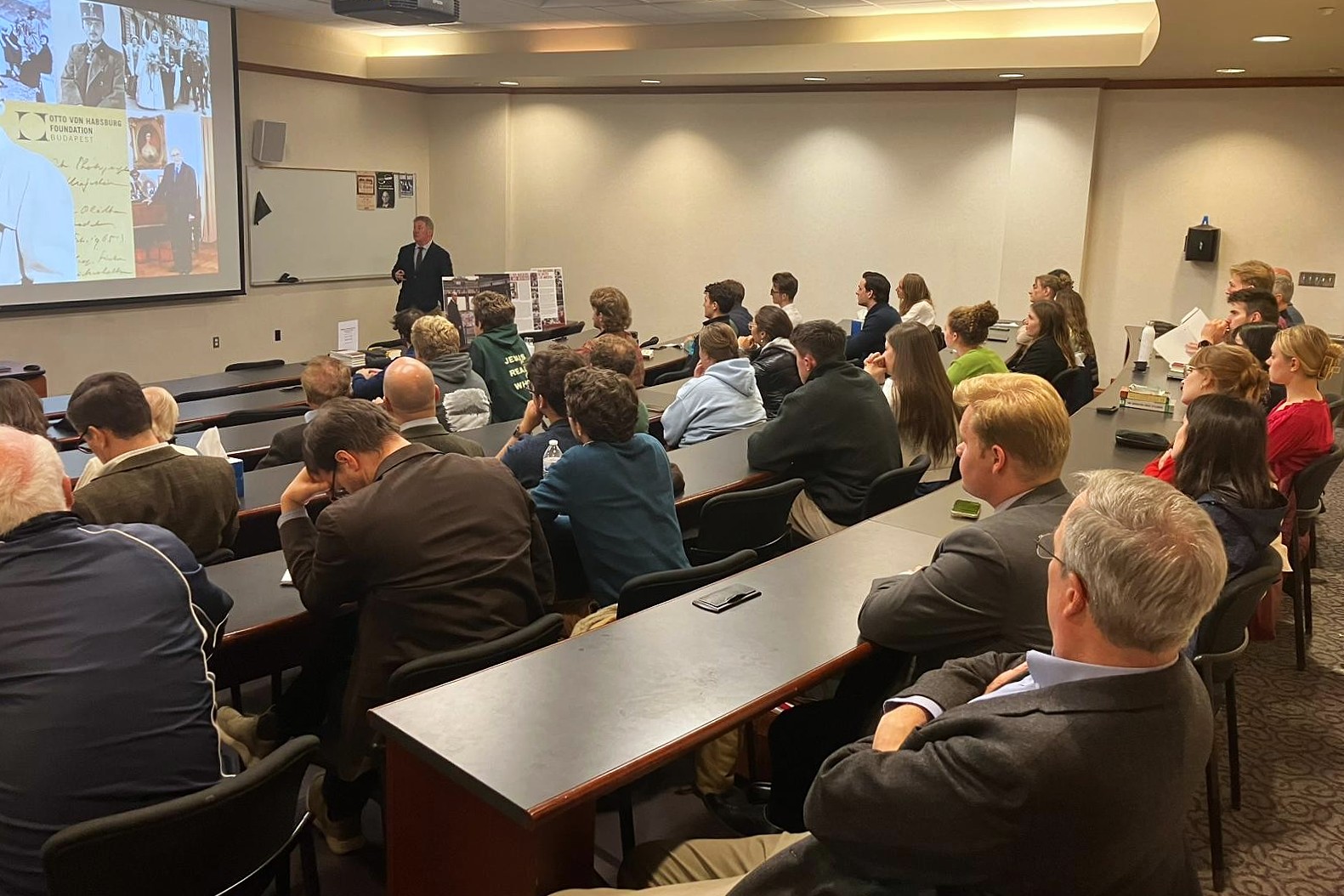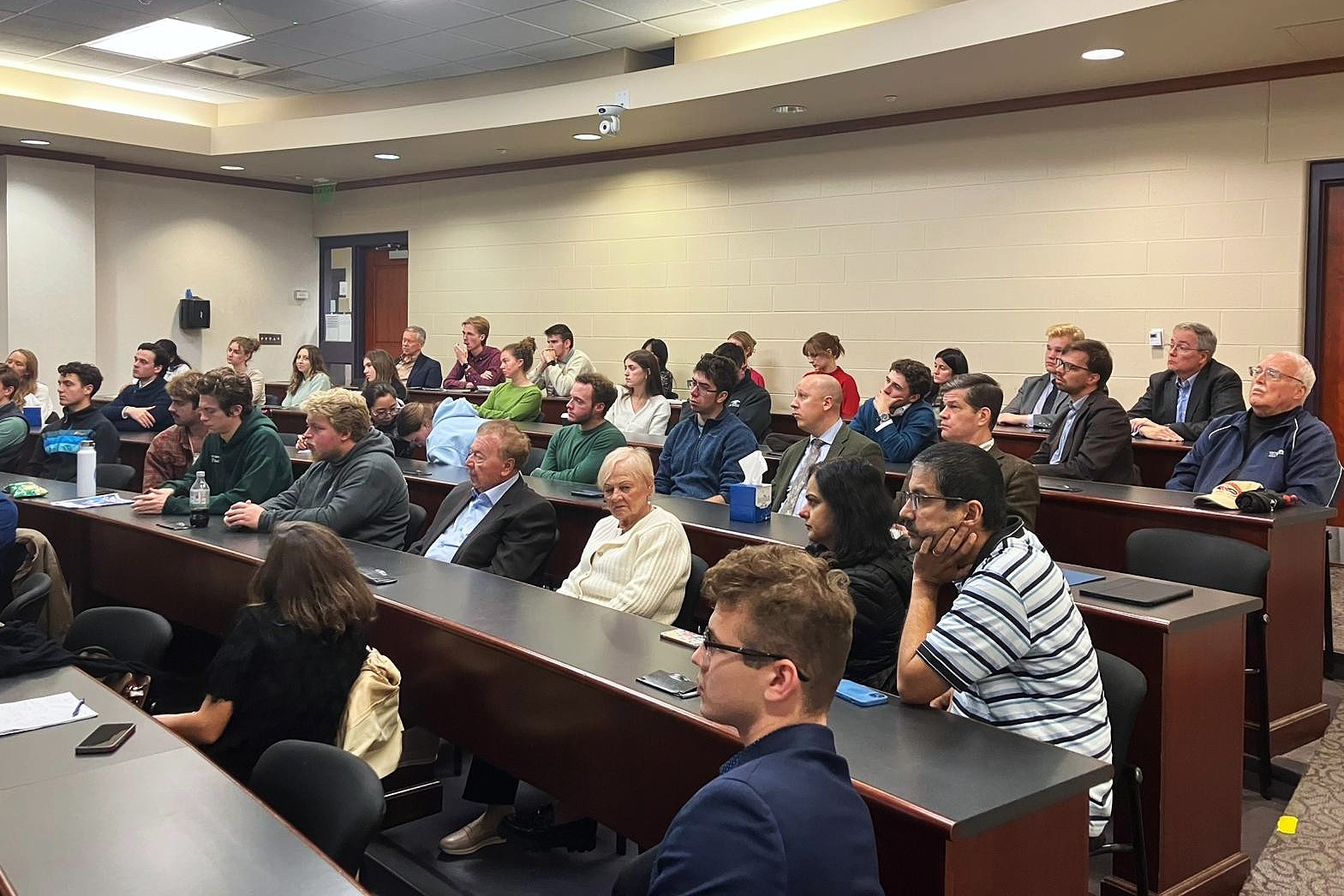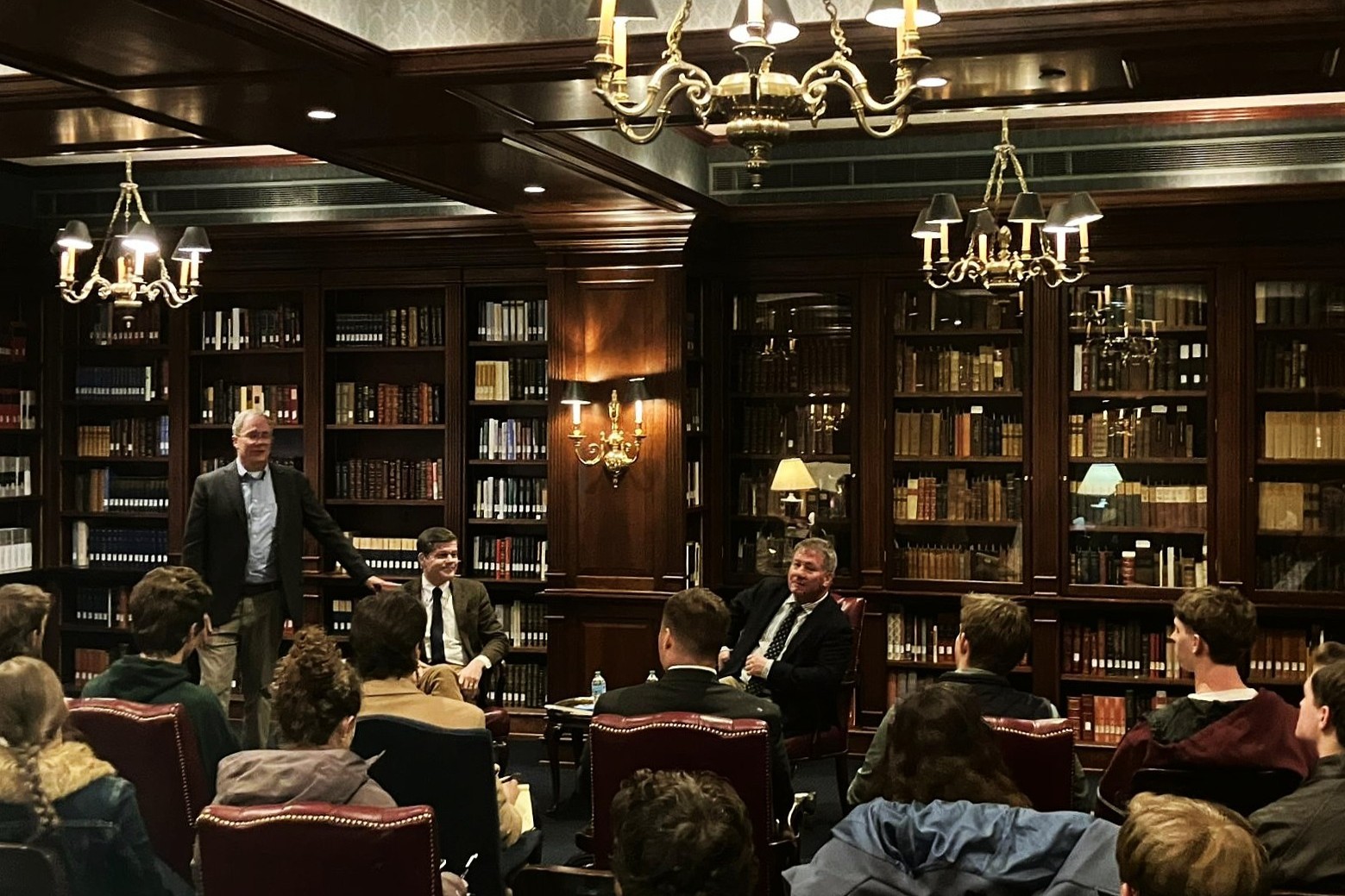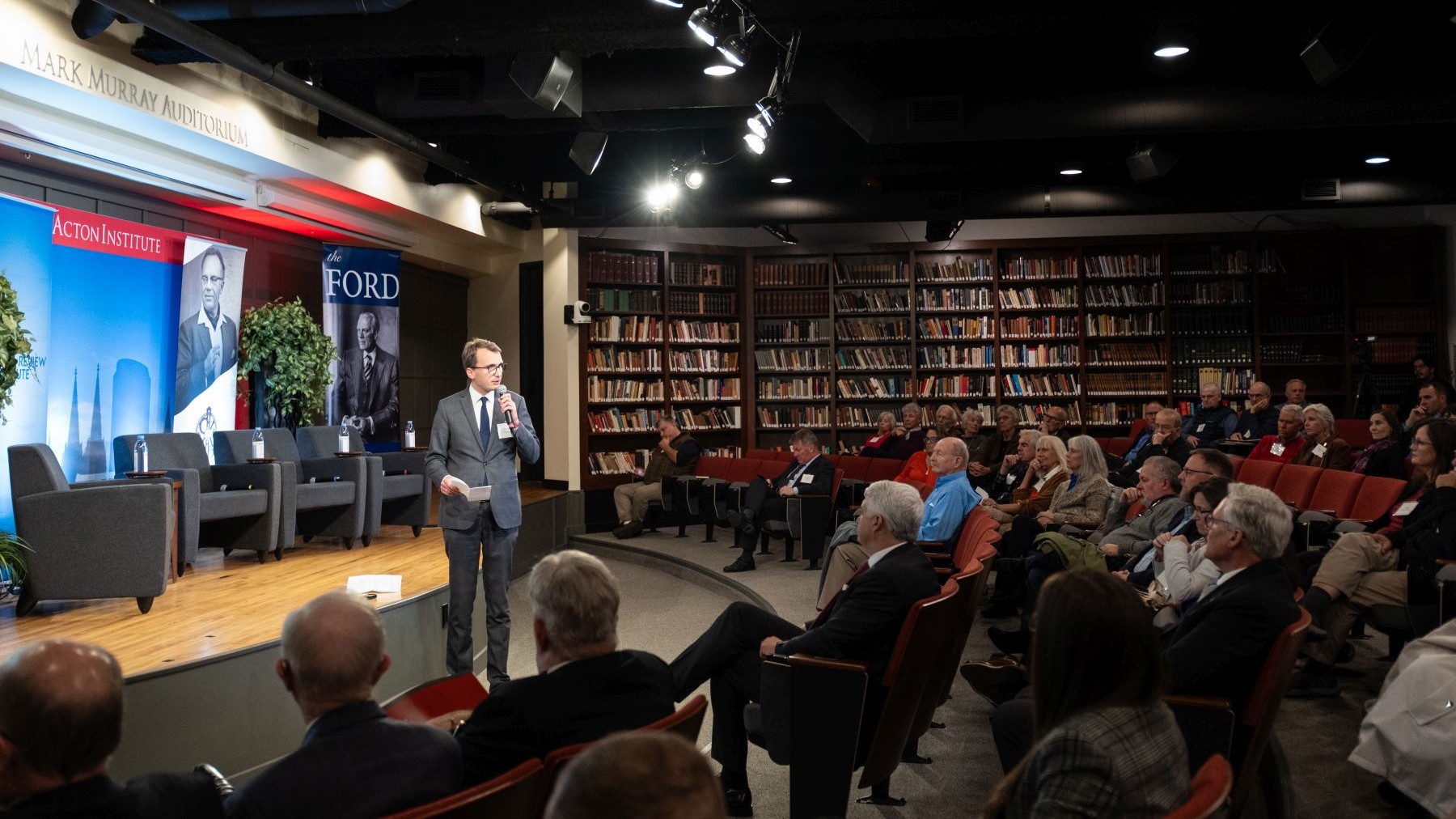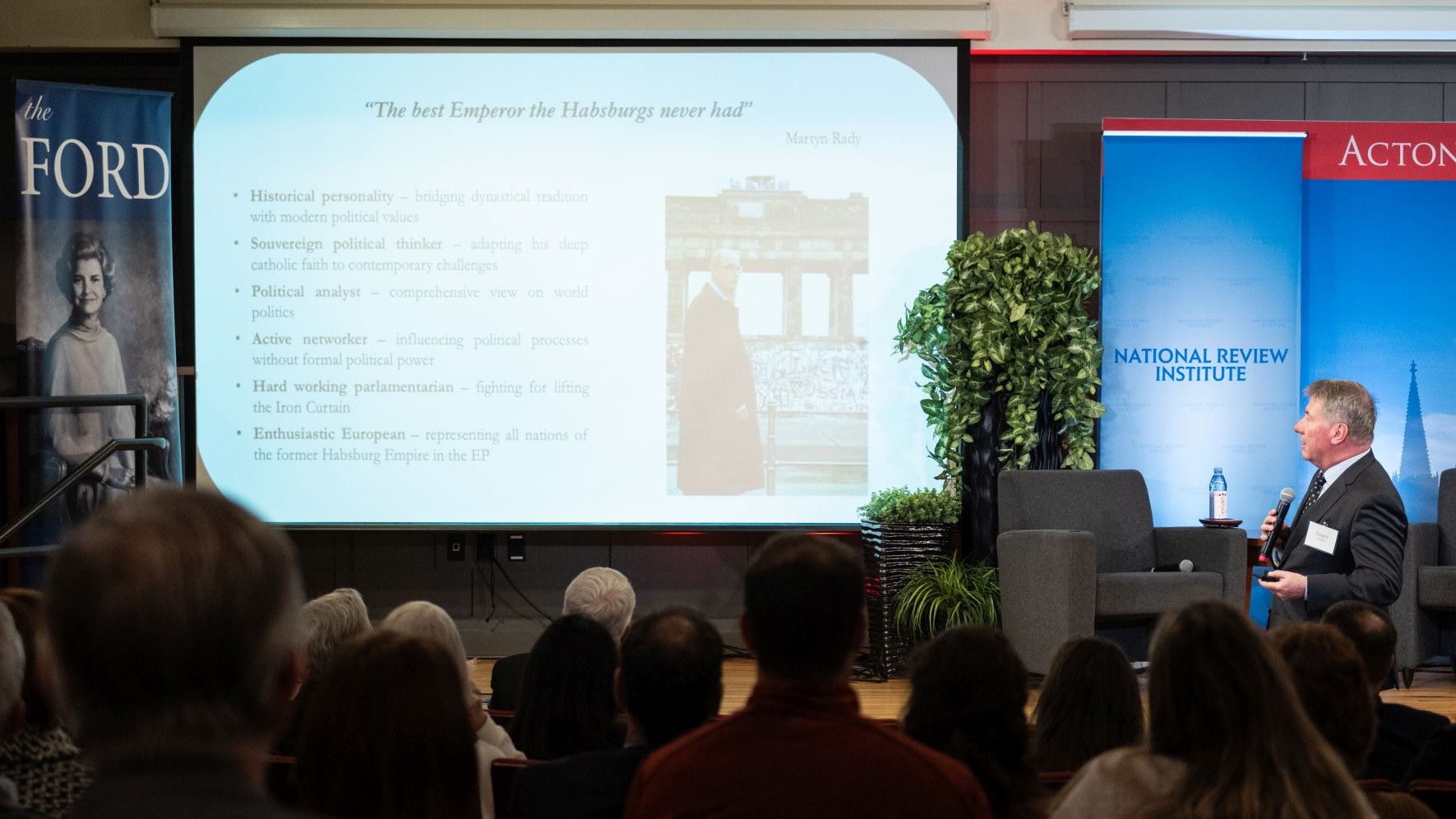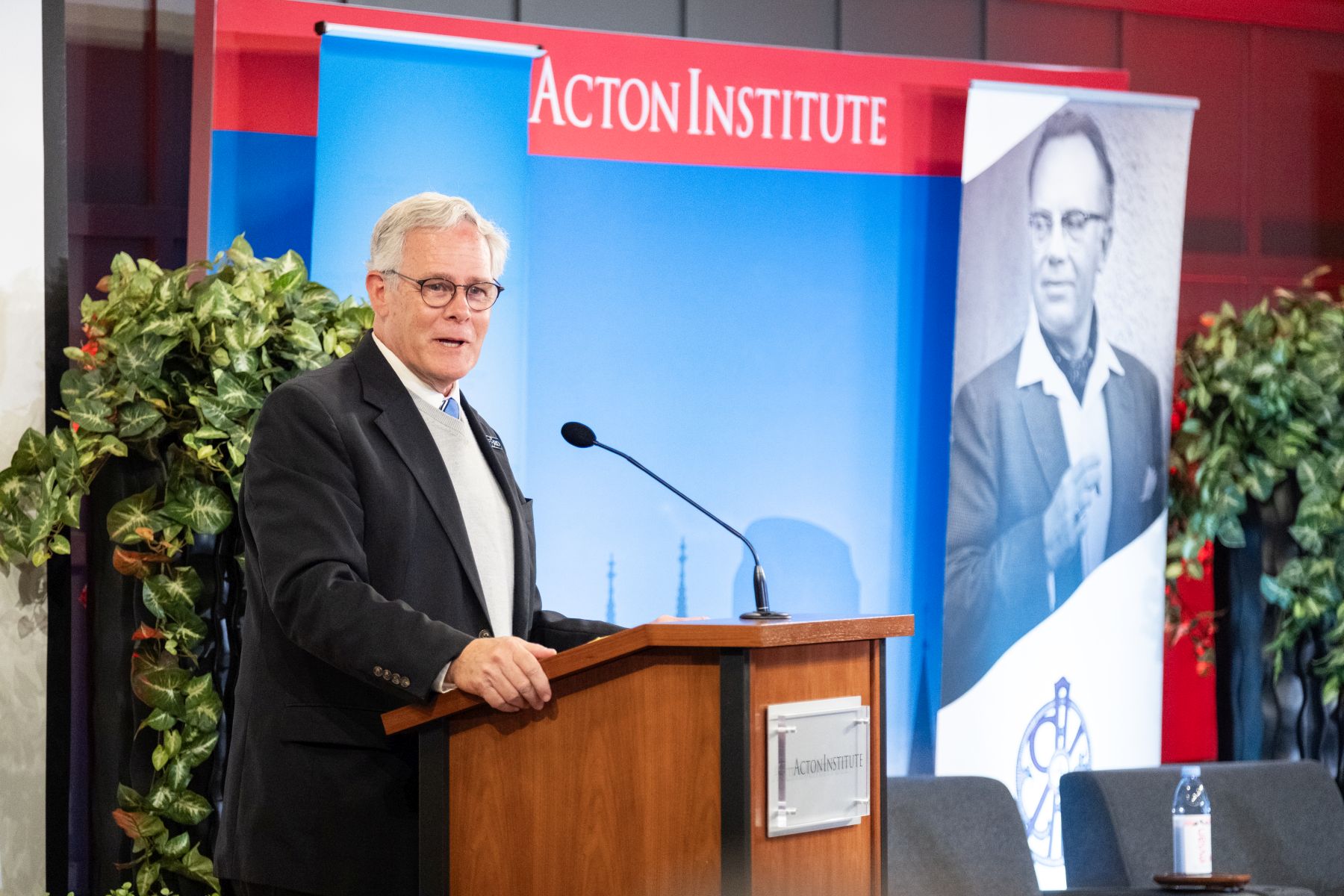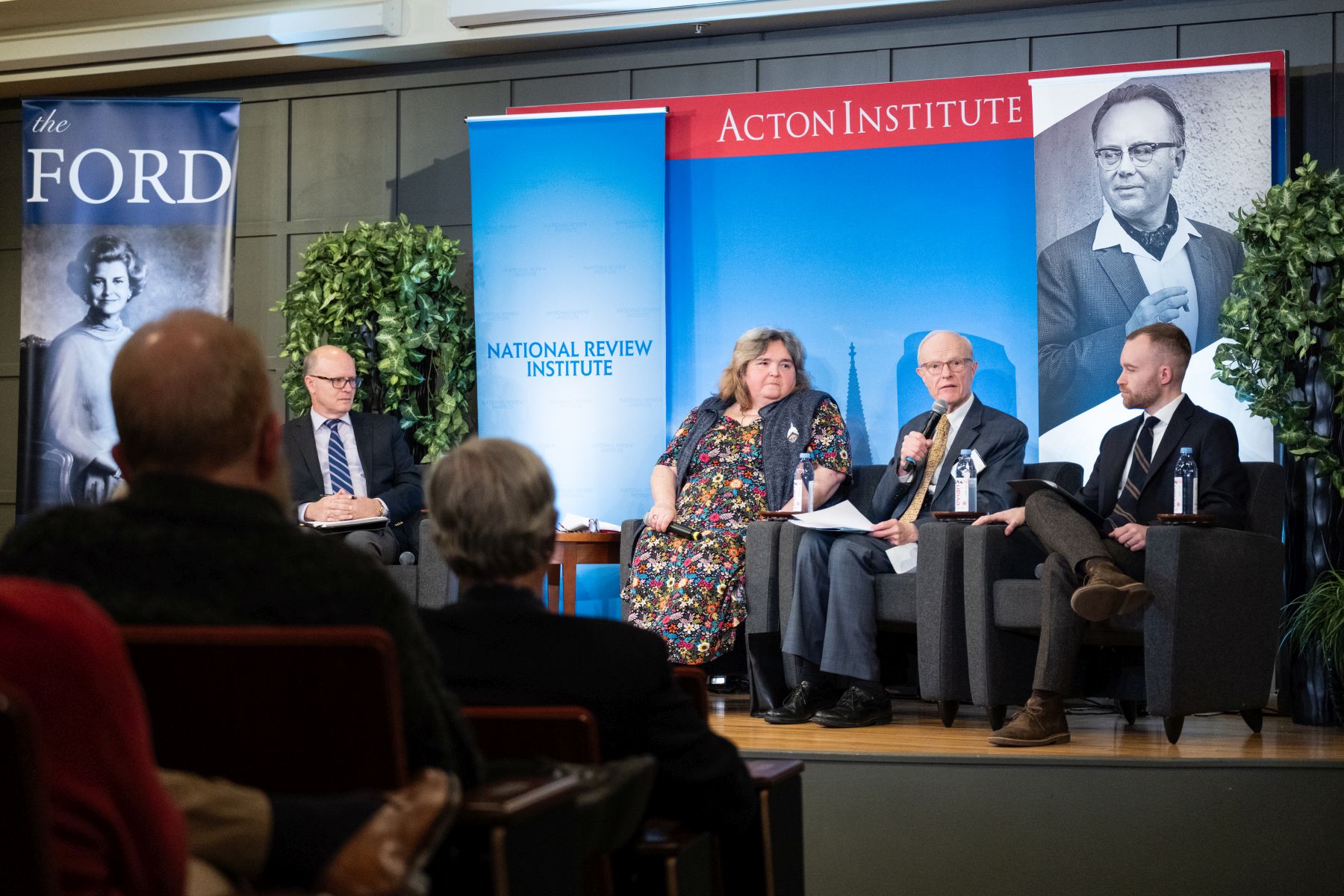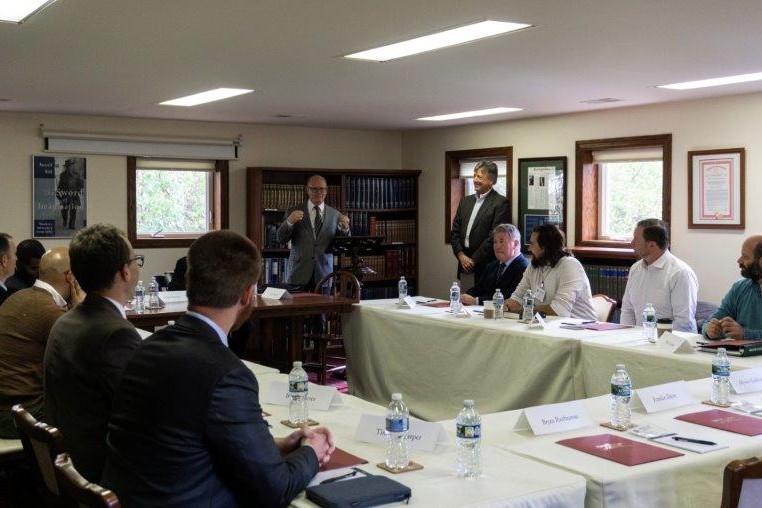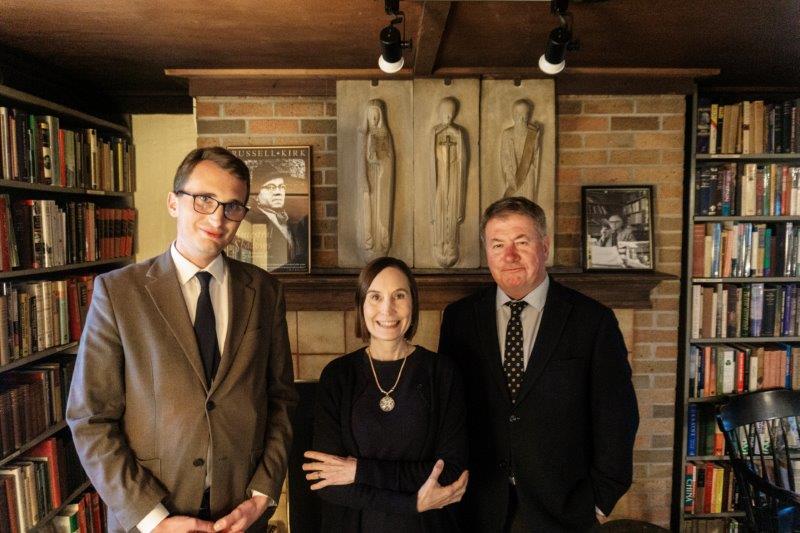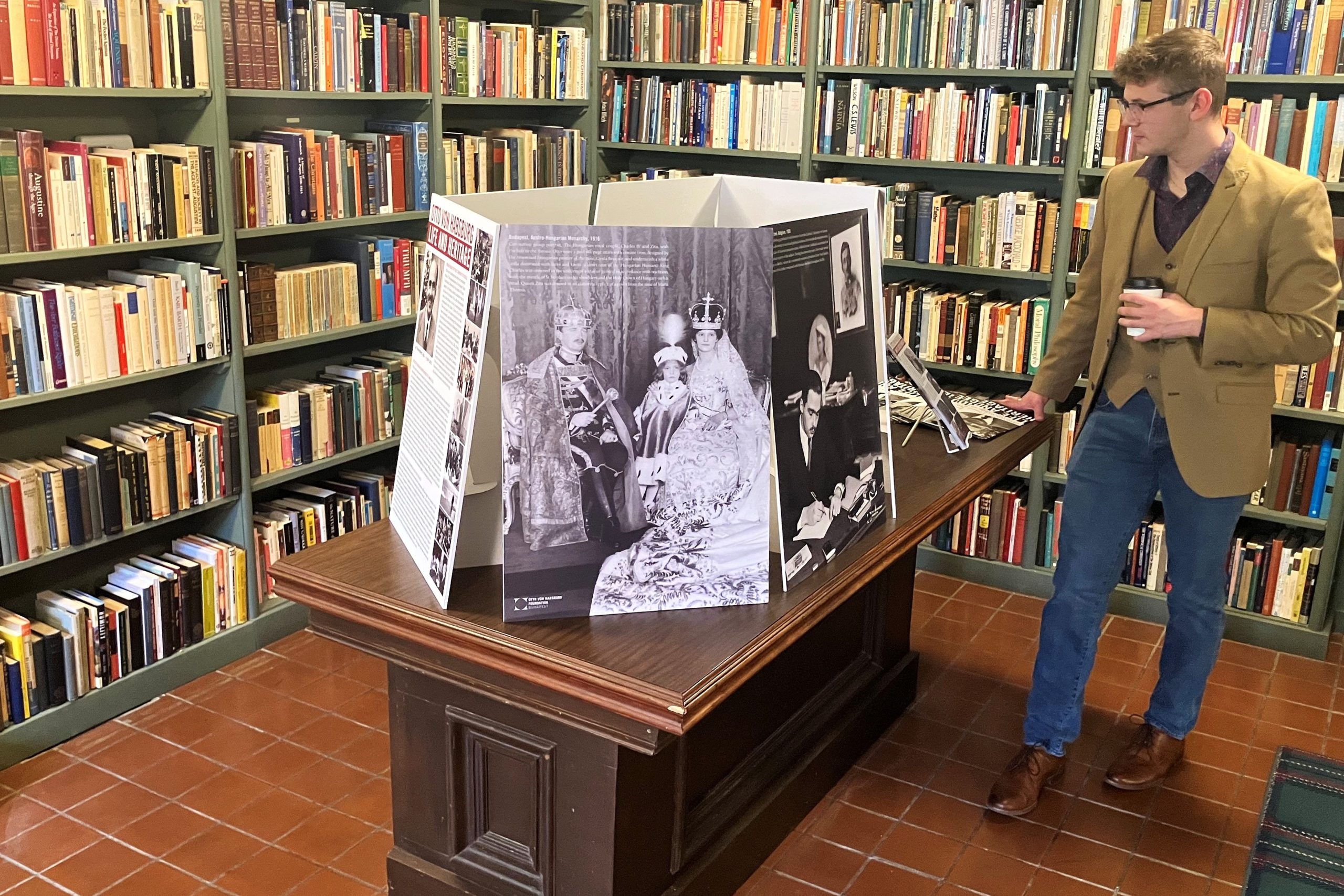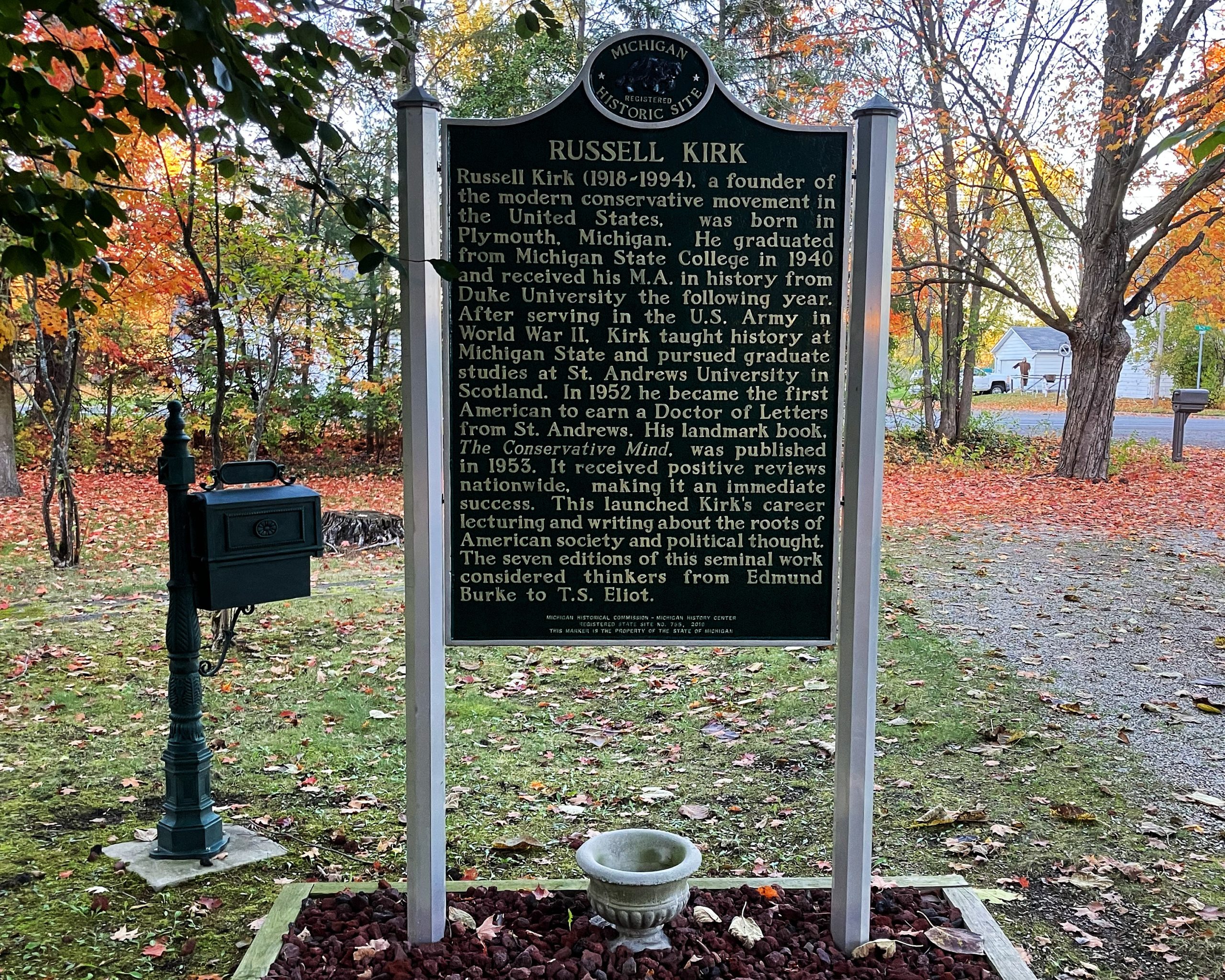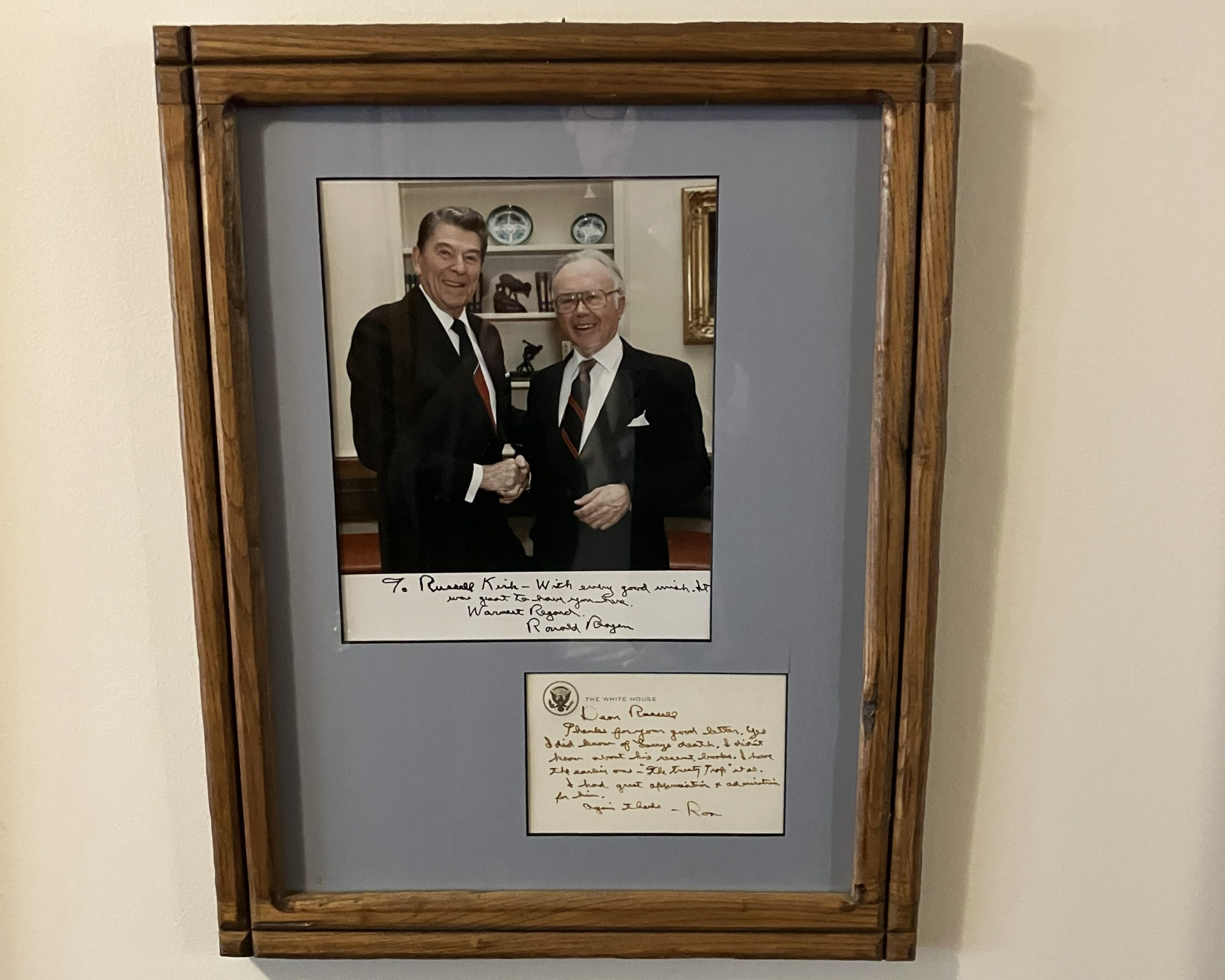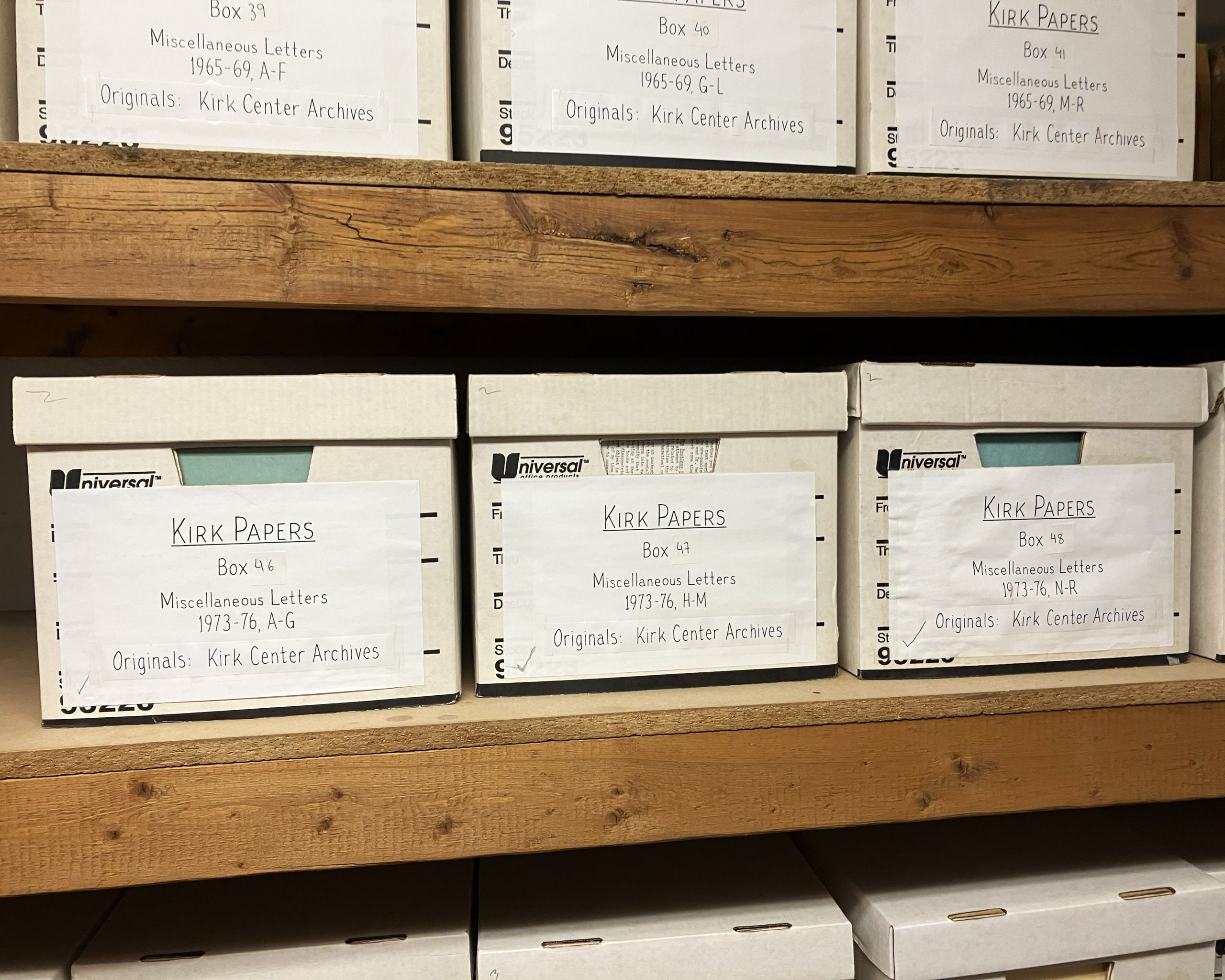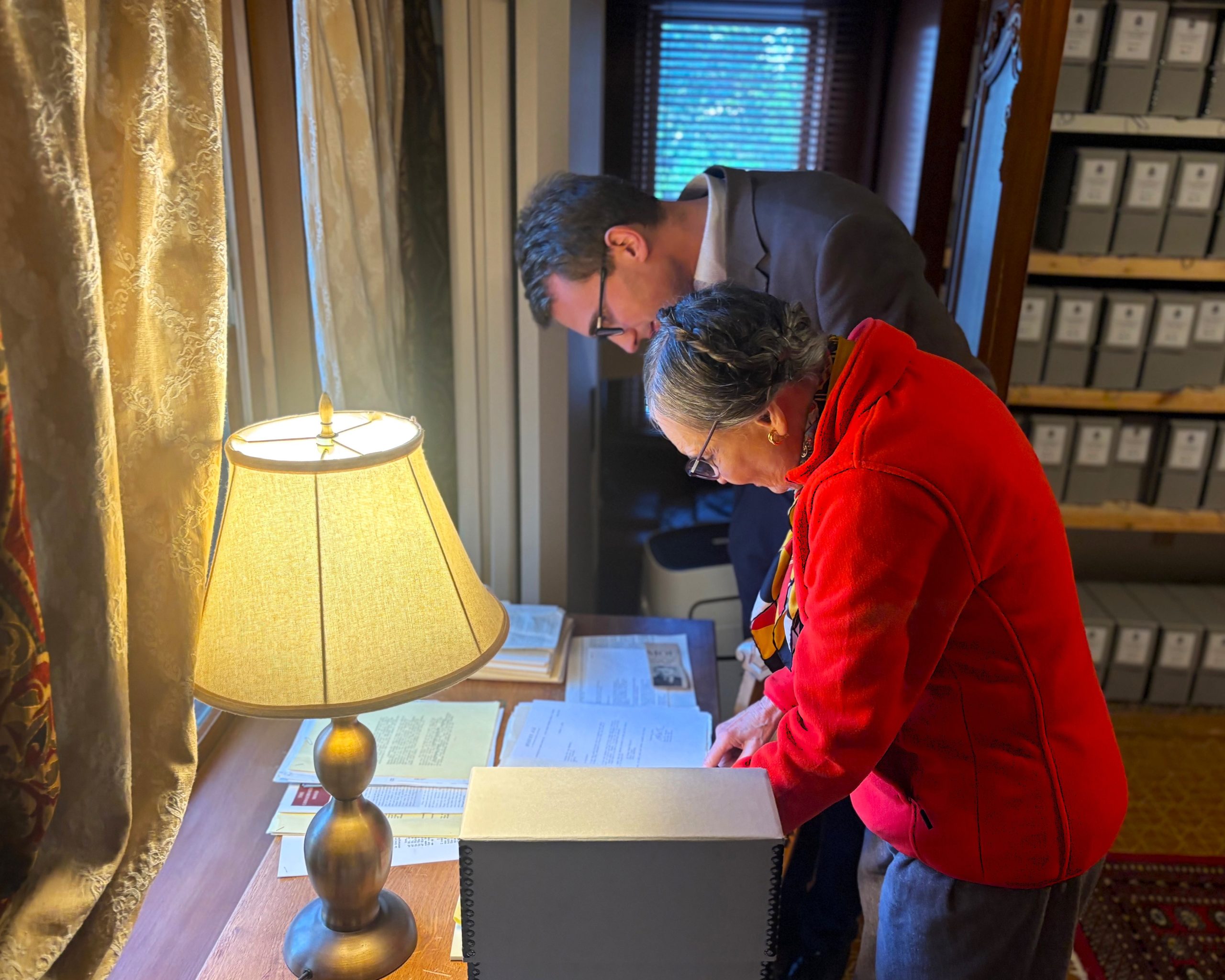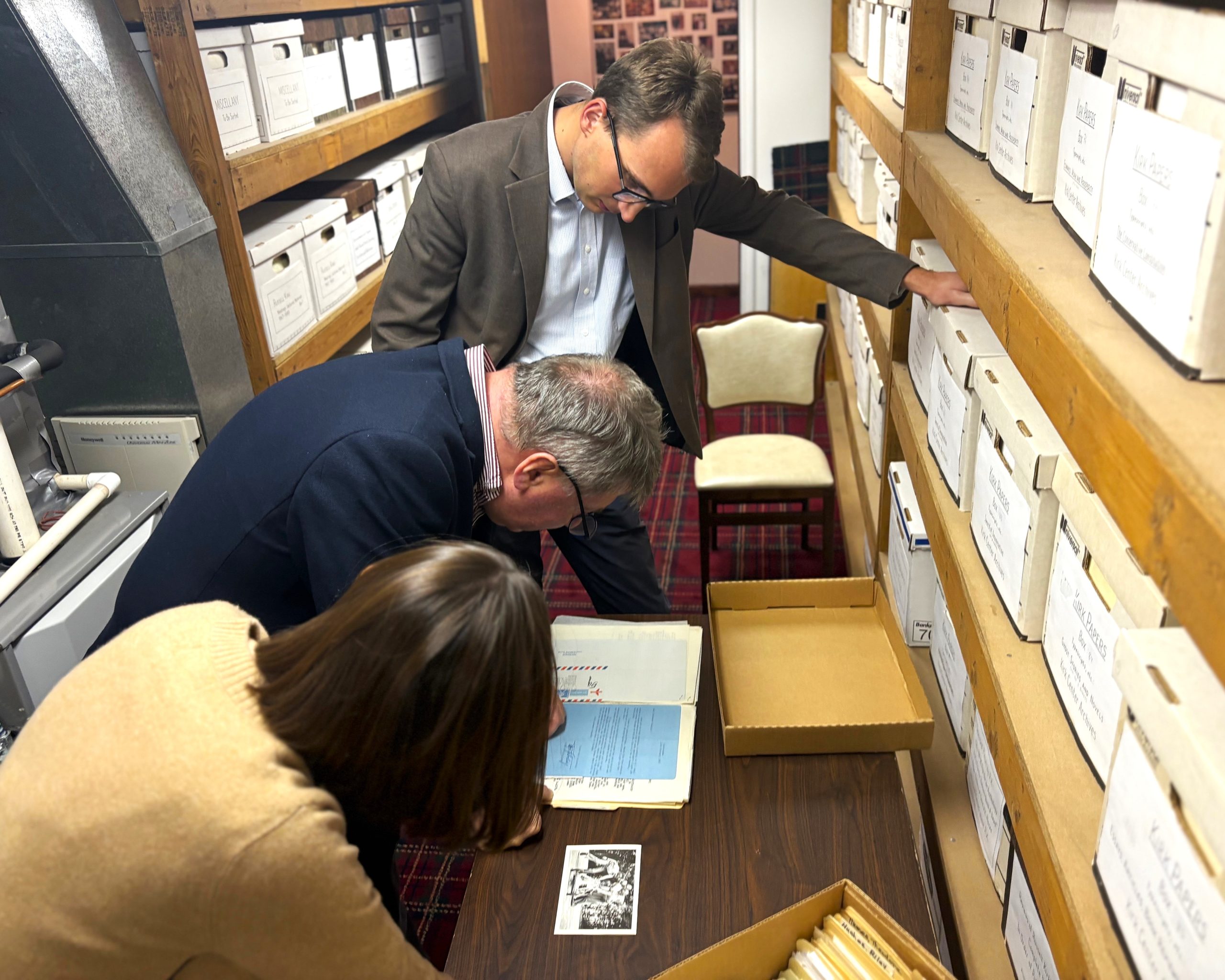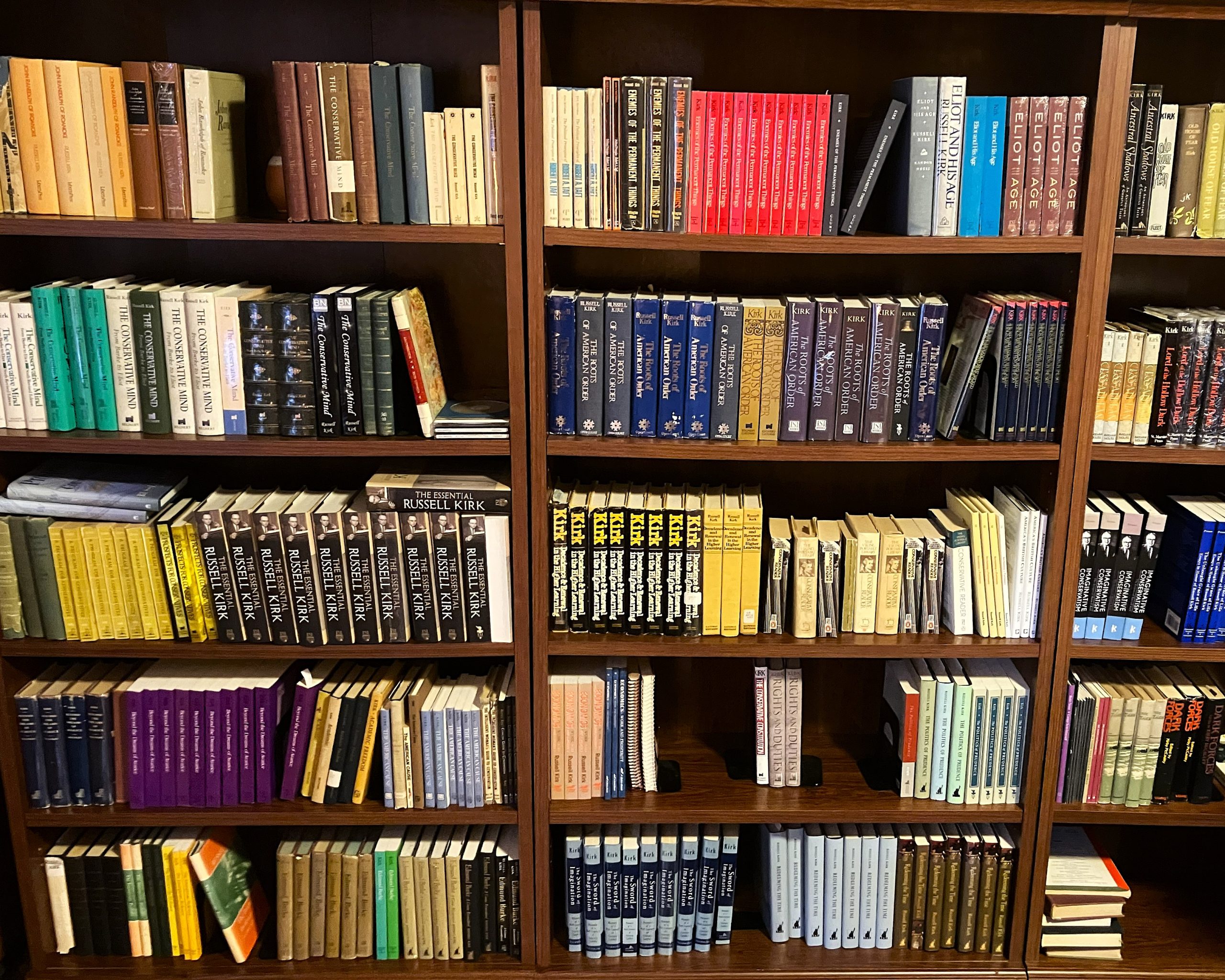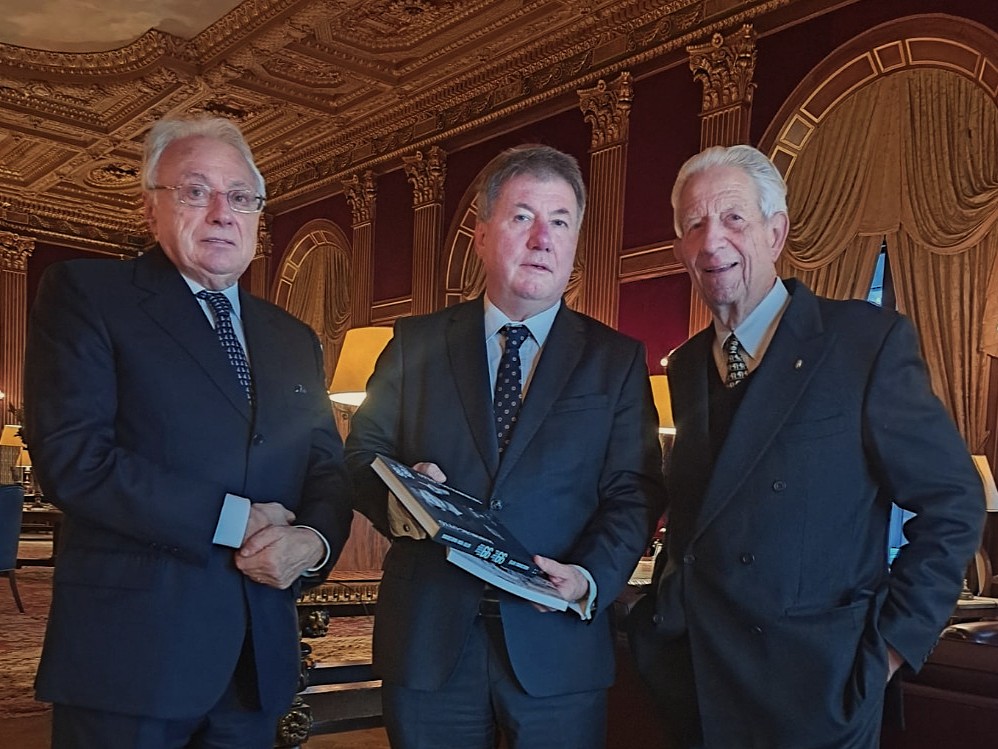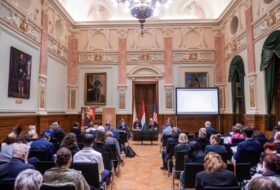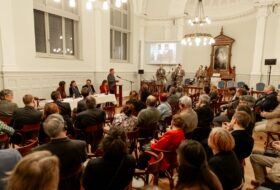Otto von Habsburg, as one of the foremost architects of post-war conservative thought and political renewal, played a pivotal role in fostering dialogue between American and European intellectuals and policymakers. He stood as a bridge between the Anglo-Saxon and continental traditions of conservatism, linking leading political figures with prominent intellectual conservatives. The former Crown Prince’s extensive transatlantic network of public and political connections continues to offer vital insights into the past and dynamics of the global Cold War – and still serves as a compass for political reflection today. While our Foundation has on several occasions reviewed its namesake’s New World relations through events held in Budapest, this time we had the opportunity to visit those institutions which remain key custodians of America’s conservative intellectual legacy – a legacy now challenged and reinterpreted amid an era of cultural transformation and deepening political polarisation.
The Foundation was represented by Gergely Prőhle and Bence Kocsev, whose travels to the American Midwest offered a glimpse into a distinctive microcosm of the nation’s social and economic landscape – a region that once embodied the essence of the American Dream. That old Midwest, however, belongs irretrievably to the past. Today, globalisation, industrial decline and deepening political divisions lay bare the dilemmas of what sociologists have termed the “late” or “second modernity”: the loss of economic security and the struggle to redefine collective identity. These experiences of crisis – far from being purely local phenomena – urge contemporary conservative thought to seek new answers and guidelines on how to reconcile community, identity, and economic stability in an age of flux. The urgency of addressing such challenges was particularly evident during the latter part of their stay, which featured programmes exploring the future directions of conservative political practice in the context of present-day social realities and ideological dilemmas.
Our colleagues were warmly welcomed at the Hungarian Consulate in Chicago by Bálint Bakondi, Deputy Chief of Mission, who shared Hungary’s perspective on the region, accentuating how American businesses, academic institutions, and research facilities contribute to Hungarian development, and vice versa, how Hungarian communities and interests continue to engage with the economic and social life of the American Midwest.
 |
Then they proceeded to the University of Notre Dame in northwestern Indiana, a stop that, at first, seemed only loosely related to these broader considerations but soon revealed itself as a unique vantage point for understanding the transformations in American society, economy, and cultural life through the bequest of John Lukacs. Beyond its exemplary contributions, the prestigious Catholic institution is essential from a Hungarian standpoint because its archives preserve the written heritage of Professor Lukacs (1924–2019), the Hungarian-born American historian, whose work offers a unique perspective on contemporary history, culture, and historical thought, as well as profound insight into the shared Hungarian-American identity. For nearly three years, our Foundation has maintained close collaboration with Richard Gamble, a distinguished history professor at Hillsdale College, who first came to Budapest as a guest speaker at the conference marking the centenary of Lukacs’s birth. Since then, he has returned several times with his students to study the life of the famous historian and his enduring ties to Hungary. Professor Gamble is currently preparing an intellectual biography of Lukacs, relying on the university’s archive – comprising approximately 80 boxes of correspondence, research materials, articles, essays, poetry manuscripts, proofs, publications, and audiovisual materials, including a substantial Hungarian-language collection – as an indispensable resource. During the delegation’s time there, an agreement was reached with the leadership of the Hesburgh Libraries at Notre Dame on the preparations to digitise and translate the Hungarian-language holdings of the bequest, as well as with the university press regarding the planned Hungarian-language edition of Professor Gamble’s biography.
Cleveland, Ohio, once referred to as ‘the second-largest Hungarian city’, was the subsequent destination. Despite the pressures of assimilation, the local Hungarian community remains active, preserving its language and traditions. Thanks to the dedicated members of the local Hungarian diaspora – Andrea Mészáros, Katalin Vörös, Endre Szentkirályi, their families, and many others –, the delegation could enjoy the traditional Hungarian hospitality, interact with the community’s contemporary life, and tour the historic Hungarian neighbourhood along Buckeye Road, known as Little Danube or Little Hungary, including landmarks such as the Hungarian Museum and the Cleveland Cultural Gardens.
At the invitation of the United Hungarian Societies, Gergely Prőhle delivered the keynote address at the October 23 commemoration. In a speech interwoven with personal family recollections, Director Prőhle underlined that the spirit of the 1956 Revolution is not only a historical legacy but also a living testament to faith, courage, and a sense of communal responsibility. He reflected on the inevitability of the gradual erosion of collective memory and the shared values with the passage of time, while, as a counterpoint to this trend, he recalled the significance of family stories and the experiences of parents and grandparents that continue to shape our moral outlook. He stressed that the ideals of 1956 – dedication to liberty and national independence – remain deeply relevant, particularly in engaging younger generations, for whom these values may serve as a cornerstone of their identity. Prőhle further observed that fostering communal responsibility, preserving cultural traditions, and sustaining vibrant civic life are essential to ensure that historical memory remains active and resonant, rather than confined to museum vitrines. “The 250th anniversary of the United States offers an occasion to celebrate the manifold contributions of Hungarians who arrived across successive eras… A Hungarian who has successfully integrated into the local milieu can, on a global stage, serve as an exemplar of national distinction,” he concluded.
In this respect, the engagements at Notre Dame and Cleveland vividly highlighted the enduring contributions of Hungarian and Central European immigrants and communities, who enriched the United States not only through their labour and expertise but also through their values, historical experiences, and cultural traditions. In so doing, they helped shape the pluralistic fabric of American identity and opened new horizons in political thought, economic development, the arts, and public life. On the occasion of the 250th anniversary of the Declaration of Independence, our Foundation aims to draw attention to these Central European contributions, which have played a formative role in the making of modern America.
The next on the delegation’s itinerary was Hillsdale College in Michigan, where they attended a series of excellently organised events at the invitation of Professor Richard Gamble. Founded in the mid-19th century by devout Baptists, the College has become a bastion of classical liberal arts education and resistance to ideological excesses in mainstream U.S. academia. Thanks to Calvin Stockdale, the committed and thoughtful fundraiser of Hillsdale, the two-day program also offered a chance to meet Péter Várhegyi and his wife, Gyöngyi, prominent Hungarian-American benefactors of the College who have long supported Professor Gamble’s research with his students at our Foundation. Their emigration and successful integration stand as a testament to the promise of the American Dream, offering students born after the fall of the Iron Curtain a vivid and tangible tie to recent history. The meeting left a lasting impression on the future interns who will visit our Foundation next summer, illustrating how personal memories and family narratives can illuminate historical understanding and bridge the divide between lived experience and scholarly inquiry. Plans were also made to continue supporting students through a scholarship commemorating Otto von Habsburg and John Lukacs.
During their time at Hillsdale, Wess A. Mitchell – a former U.S. Deputy Assistant Secretary of State for European and Eurasian Affairs under the first Trump administration – happened to be on campus as well. At the gala dinner, organised for the supporters, alums, and friends of the College, he presented his latest work, Great Power Diplomacy: The Skill of Statecraft from Attila the Hun to Kissinger. Dr Mitchell’s earlier major opus, The Grand Strategy of the Habsburg Empire, was introduced to Hungarian readers a few years ago, and our Foundation will play an active role in the forthcoming publication of its second edition.
The following afternoon, a small conference was organised for the students and faculty of the College. In his keynote, Archduke Eduard von Habsburg, Hungary’s Ambassador to the Holy See, underscored some of the central themes of his widely read book, The Habsburg Way, and articulated the critical insights of the Habsburg’s own self-understanding, which are also broadly reflected in the family’s vision and its enduring influence across culture, politics, and society. He then spoke about Otto von Habsburg, reflecting on the ideas he championed and his concept for Europe, emphasising how a family history so closely intertwined with that of the continent had shaped his own European outlook. The Ambassador recalled that, in his youth, he had been greatly influenced by Otto’s political sensitivity and intellectual integrity, and that during his formative years, Otto von Habsburg stood before him as an intellectual authority whose mindset, far-sighted perspective, and moral stature transcended the political realities of his time. Following the online address by the senior diplomat, Gergely Prőhle gave the university’s students and faculty a comprehensive presentation on the history of our Foundation, its core objectives, and the broader domestic and European context in which it operates, providing insights into the strategic framework that guides our work and demonstrating how the institution’s principal aims can be put into practice.
The day concluded with a discussion between Gergely Prőhle and Wess A. Mitchell in the university’s impressive Heritage Room, lined with the editions of the most influential works of the Western canon—an inspiring setting for study and reflection alike. The conversation, drawing on the arguments and insights from the former American diplomat’s latest book, explored the current geopolitical landscape, the challenges of great power diplomacy, and the lessons that historical perspectives can offer for understanding contemporary international decision-making and strategic thought.
Following Hillsdale, our colleagues participated in a distinguished conference in Grand Rapids, jointly hosted by the Russell Kirk Center for Cultural Renewal, the Gerald R. Ford Presidential Foundation, and the Acton Institute. The event marked the centenary of William F. Buckley’s birth, celebrating the oeuvre of the renowned journalist and political thinker. After the opening remarks by Jeffrey Nelson, Executive Director of the Russell Kirk Center; Gleaves Whitney, Executive President of the Ford Presidential Foundation; and Father Robert Sirico, the legendary founder of the Acton Institute, our Foundation was also introduced. The dialogue touched upon the relationship between Otto von Habsburg and the founder of National Review, an association that illustrates how personal networks, shared ideological commitments, and mutual interests shaped the development of post-war conservative thought and influenced political discourse on both sides of the Atlantic.
The panel discussions provided an exceptional and inspiring pathway to the seminar themes in the days that followed in Mecosta. The event – attended not only by Republican legislators from Michigan but also by representatives of organisations active in the state’s public life – invited participants to examine avenues for establishing a positive political stance beyond mere resistance to progressivism. The exchanges were framed by historical and theoretical introductions provided by a friend of our Foundation, George Nash. During the seminar, special attention was directed to the idea that the strength of the United States and Western democracies rests not only on the stability of their institutions but also on the moral and social values and principles that permeate civic life and sustain the fabric of society. Consequently, reaffirming Russell Kirk’s concept of the “Permanent Things”, strengthening the moral and cultural foundations of a free society and economy, and understanding how these values can be genuinely upheld amid contemporary political and social challenges were recognised as key tasks for the conference participants.
This two-day “retreat” was held at the Russell Kirk Center for Cultural Renewal in rural Michigan, founded by one of the most influential figures of the so-called American conservative renaissance after World War II, who maintained a close connection with Otto von Habsburg. After publishing The Conservative Mind: From Burke to Eliot, Dr Kirk returned to his ancestral home, which he named Piety Hill. Far from being a place of solitude, it became a vibrant hub of American conservative intellectual life. There, Russell Kirk and his wife, Annette, hosted numerous prominent figures, transforming their home into a center for collective reflection and dialogue. During our colleague’s stay in Mecosta, they were able to witness first-hand the archival processing methods at the Kirk Center and experience the distinctive intellectual atmosphere in which Kirk’s conception of permanent values took root. The archive comprises 81 boxes of correspondence, including the one with Otto von Habsburg, along with articles, book chapters, speeches, audiovisual materials, and documents from other conservative thinkers closely associated with Kirk.
The meticulously curated library of Kirk extends far beyond his own scholarly and literary works, encompassing the philosophical, literary, historical, and political breadth of Western civilisation, from ancient philosophical treatises and classical literature, through medieval Christian texts, to foundational modern and contemporary works in history, the social sciences, and seminal writings that have shaped conservative thought.
The U.S. trip concluded in New York, where our director, accompanied by Stephen István Nagy, the chairman of our board, presented a silver commemorative medal awarded by the President of the Hungarian Academy of Sciences to Géza Habsburg, grandson of Archduke Joseph. Born in Alcsút in 1940, Géza left Hungary at the age of four and studied in Bern, Fribourg, Munich, and Florence. He spent decades leading Christie’s auctions in London, Geneva, and New York, with a focus on the Cartier and Fabergé dynasties, curating exhibitions worldwide. Several of his books are part of Otto von Habsburg’s library, where he analysed the art-patronage practices and political influence of various royal houses. Plans were made to pursue the Hungarian publication of his latest comprehensive work, Princely Treasures, depending on publisher interest.
 |
[Silver Memorial Medal of the Hungarian Academy of Sciences presented to Géza von Habsburg, art historian, in recognition of his internationally significant achievements in the field of art history, with special regard to his research on 18th–19th century silversmithing, as well as for his efforts to promote the understanding of the Habsburg family’s artistic heritage in Hungary.]
Bence Kocsev

